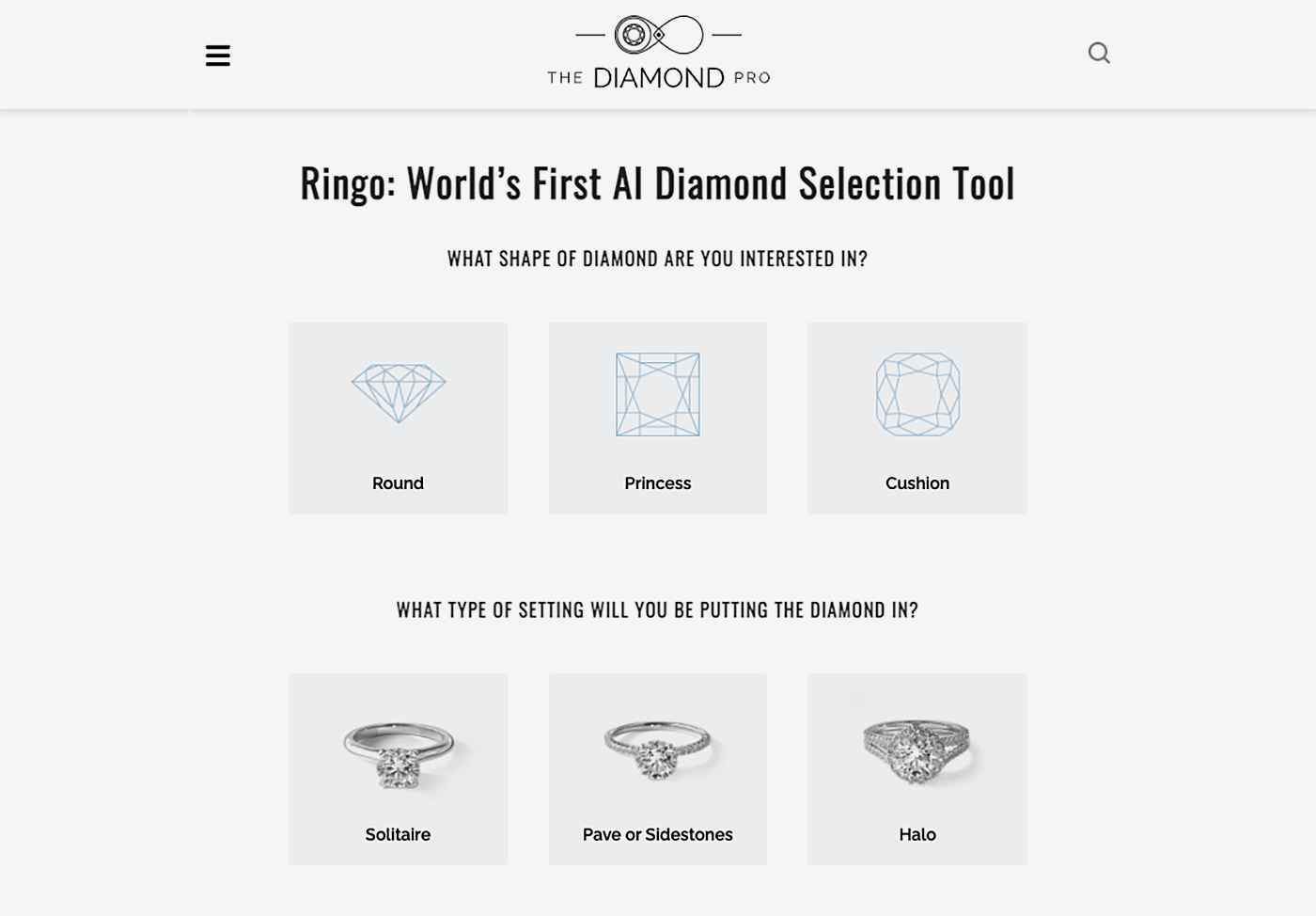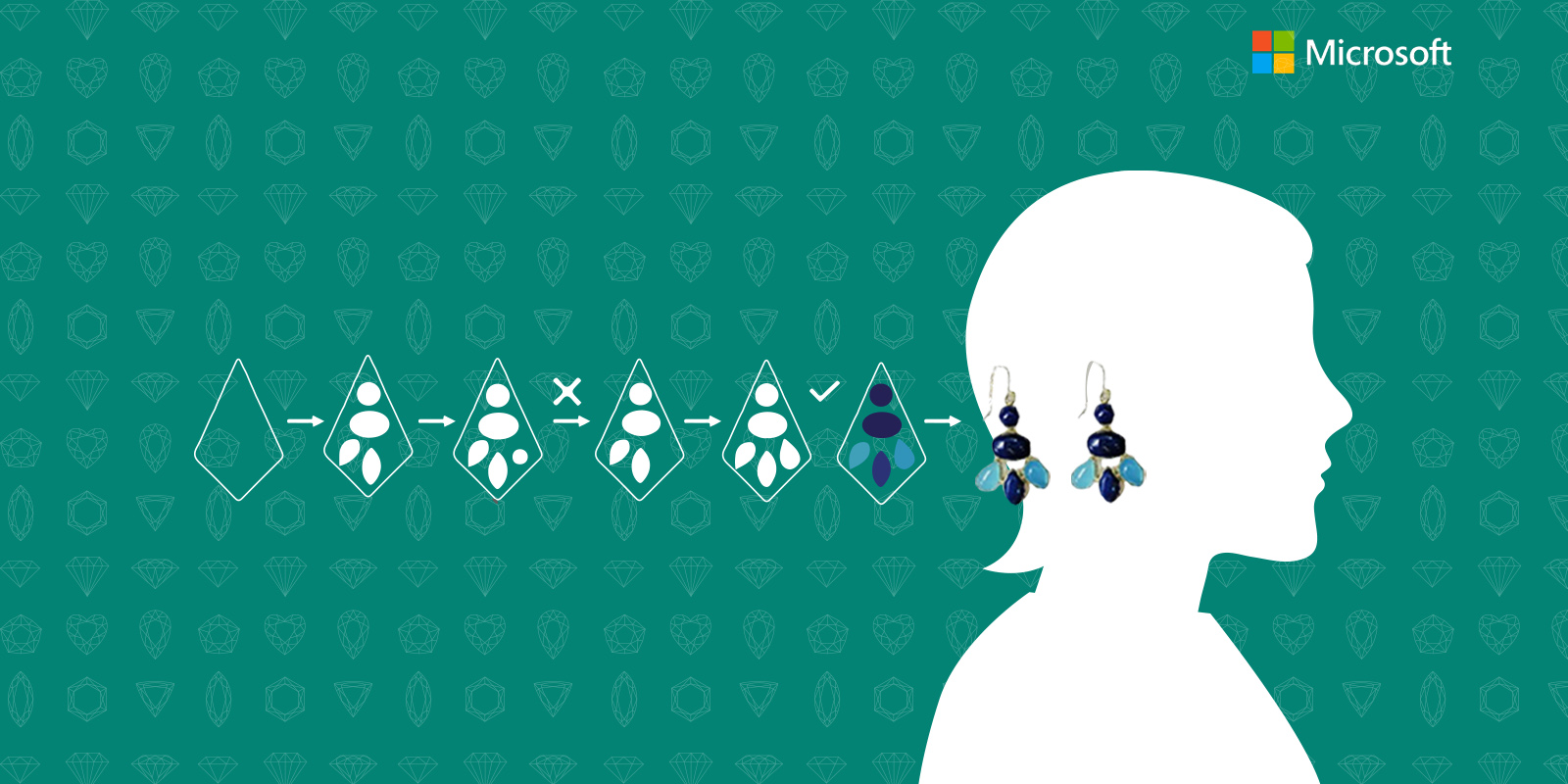How artificial intelligence has revolutionized the jewelry market
We know that since ancient times, adornments and jewellery have acted as a statement of wealth and prosperity. Even in times when there was still little knowledge about how to work with metals, men and women adorned their bodies with jewels and were even buried with them.
Throughout history, the techniques used to manufacture the best jewels have undergone a paradigm shift in all possible ways. Jewellery makers now have the technology to enable them to make fine, sophisticated pieces on a greater scale than ever, as we can see on the market today.
Now, thanks to artificial intelligence, the jewellery industry is experiencing a veritable revolution in its way of manufacturing and selling jewels. Companies such as Microsoft are already experimenting with ways of designing jewels thanks to artificial intelligence, while the most pioneering luxury brands have been introducing the latest in AI for e-commerce in their online stores.
Would you like to discover the latest groundbreaking innovations that are changing the fashion industry forever? Then read on.
Five revolutionary innovations that artificial intelligence has given the jewellery industry
The pandemic has changed the way people consume. Online shopping was already a priority for customers, but since the lockdowns Internet commerce has become more important than ever. Although people couldn’t show off their jewellery during their confinement, the jewellery industry was going to be no exception to this trend. Purchases of jewellery and watches over the Internet in Spain grew to €13.2 million throughout the second quarter of 2020. That means it rose 86% above the amount for the same period in 2019, according to data from the Spanish National Commission on Markets and Competition (CNMC).
And according to the , this trend for Internet shopping will be upheld in 2022, partly due to the introduction of remote working. For this reason, adapting online shops to consumers’ demands has become a priority for the jewellery industry. To do so, it is essential to remove obstacles like customers’ mistrust or the fear of buying a jewel that doesn’t suit them. And that is where artificial intelligence comes in, which thanks to its advanced technology can help customers try on jewels online, examine the pieces that interest them as if they were right in front of them, and even help them choose a piece as if the shop assistant were there with them.
According to the report “The AI Powered Enterprise: Unlocking the potential of AI at scale”, companies that use artificial intelligence increase their sales of goods and services by over 25%. Furthermore, AI can help to automate processes that can take a human hours.
Take a look at these examples.
1. Digitally trying on jewels
If a customer can’t go to the shop to try on a jewel, why not let them try it on online?
There are already numerous digital try-ons that can show interested customers how a pair of earrings or a ring would look on them. The potential customer can choose between the personalised designs available in the jewellery seller’s website and try them on with the help of an AI interface. The technology efficiently maps the positions of their face or hands to virtually place the jewels over them to make it look like they are trying them on in a mirror. It’s a little like the filters we see on Instagram or Snapchat, but applied to the industry.
Jewellers like James Allen, a company founded in 2007 and heavily committed to technology, have developed a tool to try on their rings (and even to customise the piece on doing so). You just have to go to their website, scan a QR code with your mobile phone, choose the piece, activate your camera, take a photo of your hand and put the ring on it (although you do have to adjust it manually). Hey presto! A perfect fit.
2.Measure your ring size online
Knowing the size of ring for the person whose hand you would like to ask for in marriage can be complicated; you can’t ask them directly, or perhaps your partner doesn’t even know. That’s why there are apps by recognised jewellery brands such as Tiffany’s that allow you to measure your partner’s ring size by placing your phone over any ring you have about the house.
Aplicación de Tiffany’s para medir la talla de un anillo
But if you want to measure the exact size of your ring and none of the ones you have fits you well, then you can also do it with your own hands (or fingers). For example, the app Ring Size™by Hitched scans your ring finger and automatically tells you your size. This AI technology is perfect for jewellers: not only is it quite an entertaining novelty, but it also removes the obstacle of not wanting to buy a ring online for fear of not knowing if it will be the right size.
3. Tool to visualise jewels in the online store
Another of the problems faced by the industry when selling online is that the customer wants to see the product. They want to check its size, see how it shines, the shape of the precious stones, whether the colour is lively or dull…the perfect solution to all of this is for the client to be able to see all of the shop’s jewels on the website itself. Using AI and machine learning together with 3D hologram technology makes it possible to create a display of pieces that the customer wants to study more closely. This enables them to preselect the products they find most attractive and later try them on online.
James Allen has also introduced a tool on its website to visualise their jewels and diamonds in 3D, while at the same time providing an advisory service with its consultants.
James Allen Diamond Virtual Consultant
Using their catalogue, you can choose any jewel and turn it around, look at it closer or further away, or else buy it together with other pieces. Thus, customers can choose the jewel they most like and if they wish, consult its characteristics in depth with an expert.
4. Inspecting a diamond in real-time
Imagine being able to discern whether or not a diamond is real, a forgery or has impurities thanks to artificial intelligence. Diamond Pro has made this possible thanks to its AI tool, Ringo. This technology is able to identify diamonds that are “clean to the naked eye” for consumers based on their budget and preferred styles. In fact, the technology can enable AI to detect a particle or defect visible to the naked eye.
By trusting in AI, the diamond industry for consumption may undergo a complete revolution, since this technology, which is still very new and being developed, may be used to identify defects in a diamond to reassure consumers who are seeking purity.

Ringo, The Diamond Pro’s real-time diamond inspector
5. AI to design jewels
Although swift progress has been made in production processes for the industry, designing jewels is still largely a conventional, arduous job requiring a lot of time. That’s fine if what we’re looking for is an artisanal jewel made with care and which is unique in the world. But what happens if we want to design jewels on a large scale?
A team of researchers at Microsoft asked themselves that same question and set themselves the challenge of changing the way we design jewels. In an attempt to redefine traditional practices in jewellery, they have used machine learning to develop an artificial intelligence system that can automate the process.
To do so, they told AI to create different designs. They then discarded the least symmetrical or pretty ones, and emphasised the designs that were symmetrical and elegant. AI then managed to create pretty, quality pieces.

Microsoft system for scaling jewelry design
Optimisation methods combined with machine learning techniques like this can take on a fundamental role in generating jewellery designs to scale. Moreover, this technology is immensely far-reaching, since it can be adapted even further to include new design principles and may also be extended to other types of jewellery.
As you can see, there are no limits to artificial intelligence and it is setting precedents for both selling and designing jewellery. The companies that manage to adapt AI to their business model will not only be pioneers; they will be able to offer better services to their customers so as to become market leaders in their sector.



